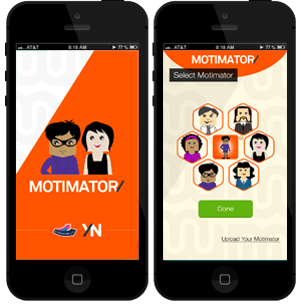The best ways to contact an employer
Unfortunately first impressions are the ones that usually stick. That’s why it’s vital to make sure you make a good one when you start speaking to a potential employer. Not to mention it’ll avoid any awkwardness if you do wind up getting the job. To help, read our guide on the best ways to contact an employer.

Telephoning for a job
In terms of ways to contact an employer during a job search, you’ll normally have to phone the company for an application form. In the process, some employers may want to ask you some questions before they send it to you. So if you’re contacting a large firm, research the company online beforehand. That way you can get the contact information for the hiring manager or the person in the human resources / hr department you need to speak to.
Use a professional phone voice
Whether you like it or not, at some point during the application you’re gonna have to speak to someone. Every now and then they may even ask you to do a phone interview and/or a zoom interview. Either of those are nothing to be afraid of. Just try to sound professional and avoid swearing or using slang – it’ll help you make a good impression and get your foot in the door.
Avoid unscheduled phone interviews
Never agree to be interviewed there and then – likelihood is you’ll be completely flustered. Instead, you should always politely ask to be interviewed at a more convenient time. Then, as soon as you hang up the phone, you can start panicking and get to researching. Once you’ve fully prepared, take some deep breaths and call back at the agreed-upon time. And remember, it might take a while to receive a response and/or a job offer so try to be patient.
When phoning you should:
- Read the advertisement thoroughly – particularly the job title and job description;
- Try to find out a bit about the company and the job before calling the company. That way you can prepare some questions about the job opening;
- Call from a quiet room, where you won’t be disturbed. And make sure you have good signal;
- If you don’t have a phone, ask a friend or neighbour whether you can borrow or even pay to use theirs;
- If you have to use a public phone, make sure you have plenty of change – even better use a phone card which has many units left;
- Have a copy of your CV at hand, just in case they wanna know about your background (see our tips for how to write a CV here);
- Have pen and paper / the notes app ready for jotting down any important info they mention;
You shouldn’t:
- Have any distractions around you;
- Eat, drink, chew gum, or smoke when making the phone call;
- Panic if they ask you questions you might not know the answers to straight away – just stay calm and take a minute to think before answering.
Writing or emailing for a job
You might have to write a letter or email in reply to a job opening. We’re gonna focus on the sending a letter option since it’s probably one of the ways to contact an employer that’s spoken about least.
It’s usually better to type the letter – employers may not bother to read a letter if it is written by hand and difficult to read. But some employers do prefer letters to be hand written. In either case, always make sure to check the advertisement.
When writing a letter to apply for jobs:
- Do a rough draft first – read it through to make sure that it makes sense, and that there are no spelling and/or grammar mistakes;
- Use black type or ink on unlined A4 sized paper if printing, save as a PDF if emailing;
- Only type/write on one side of the paper if printing;
- Include your full address and telephone number;
- Include the full date;
- Include the name of the person you are writing to and the company’s address;
- Be clear about why you’re writing to them;
- Be clear and concise with personal details which are relevant to the job;
- Sign your name and print or type your full name underneath your signature.
For more tips, see our article on writing a cover letter here.
Next Steps
- Chat about this subject on our Discussion Boards.
By Nishika Melwani
Updated on 01-Jun-2022
No featured article














